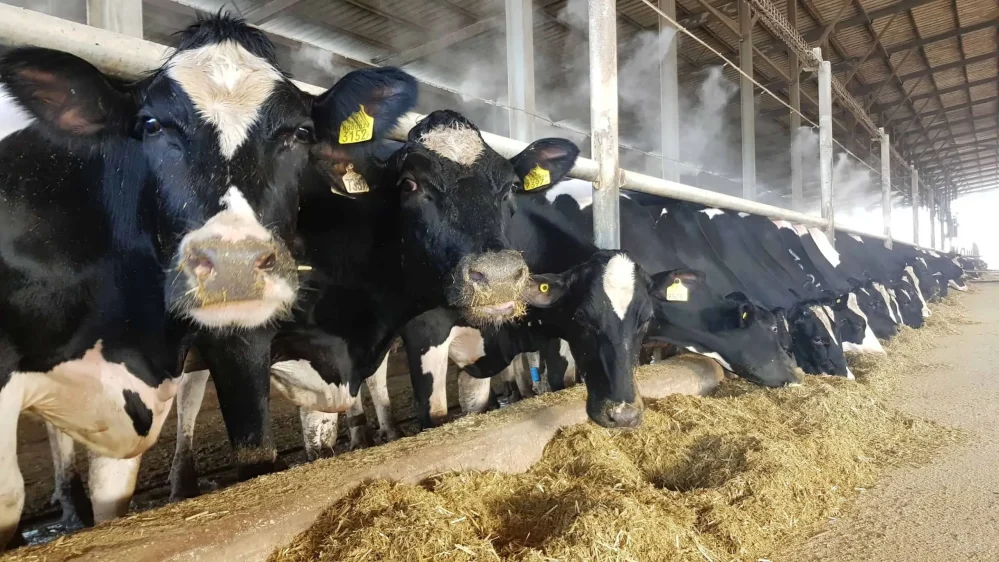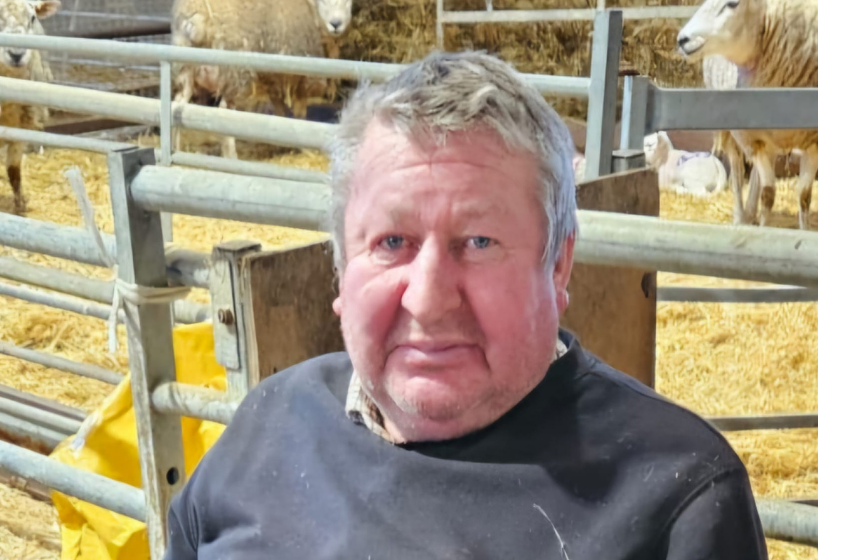Farming
‘False positives’ must be eliminated

New bovine TB tests needed?: Cambridge University has recommended
A NEW study performed by researchers from Cambridge University has recommended that new tests are needed to make vaccination against bovine tuberculosis (bovine TB). The report points out that in order for vaccination to be viable, the number of false positives from these tests must be significantly reduced. The scientists have said the reduction in false positives in cattle is feasible, but that a vaccination programme would be challenging. Despite an intensive, and costly, control program in the United Kingdom, bovine TB persists. Although vaccinating cattle with the human BCG vaccine offers some protection in cattle, doing so is currently illegal within the EU, due to the vaccine’s interference with the skin test used for surveillance.
The Cambridge team worked alongside researchers at the government’s Animal & Plant Health Agency (APHA), to show the importance of specificity – the proportion of uninfected animals that test negative – to making disease control strategies work. The skin test currently in use has a very high estimated specificity of over 99.97%, which means that less than three animals in 10,000 will test falsely positive. However, the test as carried out in Great Britain is thought to have at best an 80% sensitivity – a measure of how many infected animals will correctly test positive – missing around 1 in 5 bovine TB-infected cattle. It is used to determine if animals, herds and countries are officially free of bovine TB.
Vaccinated animals that test positive have to be treated as infected animals. Under European law, if an animal tests positive, it must be slaughtered. The remaining herd is put under movement restrictions and tested repeatedly using both the skin test and post-mortem examinations until it can be shown to be officially clear of infection. Researchers said the duration of movement restrictions is important due to the considerable economic burden they place on farms. Also, the cost to the UK government alone is estimated to amount to half a billion pounds over the last decade; this cost includes visits to farms by veterinarians, tests carried out and compensation for the slaughter of infected animals.
For vaccination to be economically viable and acceptable within the EU, the benefits of vaccination must be great enough to outweigh any increase in testing. A new generation of diagnostic tests, known as ‘Differentiate Vaccinated from Infected Animals’ (DIVA) tests, has opened up the opportunity for the use of BCG within current control programmes. The EU has recently outlined the requirements for changes in legislation to allow cattle vaccination and a recent report from its European Food Safety Authority (EFSA) emphasized the importance of demonstrating that BCG vaccine works, and that DIVA tests can be shown to perform in large-scale field trials.
However, a key factor overlooked in the EU report was that the currently viable DIVA tests have a lower specificity than tuberculin testing; this could lead to vaccinated herds being unable to escape restrictions once a single test-positive animal has been detected, as the more times the herd is tested, the more likely the test is to record a false positive. In their study, the researchers from Cambridge and APHA used herd level models to show that the level of infection can be reduced in vaccinated herds even when DIVA sensitivity is lower than tuberculin skin testing.
However, in order to see this benefit of vaccination over 99.85% of uninfected animals will need to test negative in the DIVA test. This improved accuracy will be necessary to avoid increasing the duration of breakdowns and the number of animals condemned. Using data from previous tests on cattle, the researchers said this level of ‘specificity’ is achievable, though they said there will be challenges associated with improving accuracy. The researchers said, “Currently, there is no gold standard test to diagnose TB in cattle. Cattle that test positive are slaughtered immediately and therefore have rarely developed any physical signs – in fact, only around a half of animals examined post-mortem show physical signs of infection even if they are, indeed, infected.”
Dr Andrew Conlan from the Department of Veterinary Medicine at the University of Cambridge explained “In order for vaccination to be viable, we will need a DIVA test that has extremely high specificity. If the specificity is not good enough, the test will find false positives, leading to restrictions being put in place and a significant financial burden for the farmer. “But validating a test that has a very high specificity will in itself be an enormous challenge. We would potentially need to vaccinate, test and kill a large number of animals in order to be confident the test is accurate. This would be very expensive.”
Farming
Farm building scheme near Lawrenny given go-ahead by planners

AN APPLICATION for a storage building at a south Pembrokeshire farm, made by a family member of an officer on Pembrokeshire County Council’s planning service, has been given the go-ahead by the authority’s planning committee.
In an application recommended for approval at the July 23 meeting of the authority’s planning committee, Laura Elliot sought permission for the erection of an agricultural storage building at Tedion Farm, a dairy farm near Lawrenny.
The application had been brought to committee, rather than being delegated to planning officers, due to the family connection.
The farm, near to the Pembrokeshire coast National Park border, comprises 270 milking cows and dairy heifer replacements kept on the farm comprising land over 138 hectares. The farm is mainly down to grass and the cows are paddock grazed in order to utilise grass efficiency.
No objections had been received from local community council Martletwy.
A report for members said: “The application seeks consent for the erection of agricultural storage building. The erection of an agricultural building will be used to store stay, hay and farm machinery.
“The building would be located within the existing farm complex, to the north-east of the site, adjacent to the main farm dwelling. The building will measure 18 metres in length by 13.6 metres in width, with a pitched roof height of 5.71 metres.”
Approval was moved by Cllr Alistair Cameron, seconded by Cllr Brian Hall.
Farming
Fears dairy farm near Kilgetty could increase to 3,000 cattle

PEMBROKESHIRE planners are to visit the site of one of the county’s largest dairy farms after claims were raised a scheme for new calf buildings could lead to animal welfare issues and an increase in the size of the herd to 3,000 cattle.
At the July 23 meeting of the council’s planning committee, an application by Hugh James of Langdon Mill Farms Ltd for a calf building, weaned calf building, and associated yard areas, at Langdon Mill Farm, near Jeffreyston, Kilgetty was recommended for conditional approval.
Local community council Jeffreyston has raised concerns, made by a member of the public, on potential increased noise and odour from the scheme, planners heard.
A supporting statement, through agent Reading Agricultural Consultants, said: “The holding currently has a milking herd of approximately 2,000 cows, which are housed indoors for the majority of the year, with dry cows [cows that are not lactating, prior to calving] and heifers grazed outdoors when weather and soil conditions permit.
“There has been significant investment in buildings and infrastructure at the farm over the last decade in respect of cattle accommodation, slurry storage, milking facilities, Anaerobic Digestion (AD) plant and feed storage. The unit is efficient, achieving yields of more than 10,000 litres/cow/year, with cows being milked three times/day in the 60-point rotary parlour.”
Currently, calves are reared at Langdon Mill Farm for two months before being transported off-site to be reared at a number of third-party farms in the area before being return later; the proposed 61.2m long calf building is required to accommodate young-stock, following separation from the cows, to two-months, with the 164.8m weaned calf building to be used for calves from two months to seven months.
The application says the proposals would “clearly make the enterprise more financially robust by reducing reliance on third party farms”.
However, concerns were raised at the committee meeting by objector Ian Dennis, a former vet of some four decades’ experience, who described Langdon as occupying 3,000 acres of land with 2,000 cattle currently that “are never allowed to graze,” the proposal, he said, would add another 1,000 cattle to the site.
“This is factory farming, an intensive livestock unit, no longer a farm.”
He told planners a “mendacious and incorrect” ammonia emission report submitted by the applicants was “designed to bamboozle,” saying, despite his experience and scientific background, he needed expert support to assess.
He said only average figures were reported, rather than peaks and troughs, adding the “fictitious anaerobic digestion plant” had yet to be built, with planning permission now lapsed.
However, officers told members the applicant’s agent had said works on the digestor had actually started.
On the issue of animal welfare, Mr Dennis said he had “very huge concerns” about the scale of the development, differing from a planning officer report saying the scheme would bring animal welfare benefits.
A suggestion by committee chair Cllr Simon Hancock the application be deferred pending a site visit was unanimously backed by committee members present.
Farming
Family pay tribute to farmer, 65, who died in quadbike accident

A WEST WALES farmer has died after an incident involving a quadbike.
Dyfed-Powys Police have confirmed they attended a report of an incident involving an agricultural quadbike in a field in the Llanilar area of Aberystwyth on July 17.
The force has confirmed that a 65-year-old man died at the scene.
They said that his next of kin have been advised and are being supported by specialist officers. The HM Coroner and Health and Safety Executives have been informed.
His family have paid tribute to him. The family said: “Hugh Tudor was a 65 year old farmer who had farmed at Tynberllan, Llanilar with his wife Ann for over 40 years. He was a devoted father to Sara, Lowri and the late Gwenno.
“Hugh was the son of the late Tom and Sybil Tudor of Glanystwyth and brother to Richard.
“Farming was his life, but he also had a wide range of interests and was actively involved in all aspects of the local community in Llanilar and beyond.
“We would like to thank everybody for their support and kindness during this difficult time.”
-

 Education5 days ago
Education5 days agoMilford Tesco worker achieves Oxford dream and lands top legal job
-

 Crime4 days ago
Crime4 days agoHaverfordwest man admits having nearly 1000 child and animal images
-

 Crime4 days ago
Crime4 days agoYouth set to appear in court over serious sexual offences
-

 Crime4 days ago
Crime4 days agoPolice investigating after man injured during altercation in cemetery
-

 Education4 days ago
Education4 days agoPupils delight in ice cream treat from Pembrokeshire’s number one van
-

 Crime4 days ago
Crime4 days agoTown centre ‘stinking of skunk’ as police strip cannabis farm
-

 Crime3 days ago
Crime3 days agoFag-butt police court summonses spark debate in Pembrokeshire
-

 News6 days ago
News6 days agoProposal to give firefighters a council tax discount to go to Cabinet






























